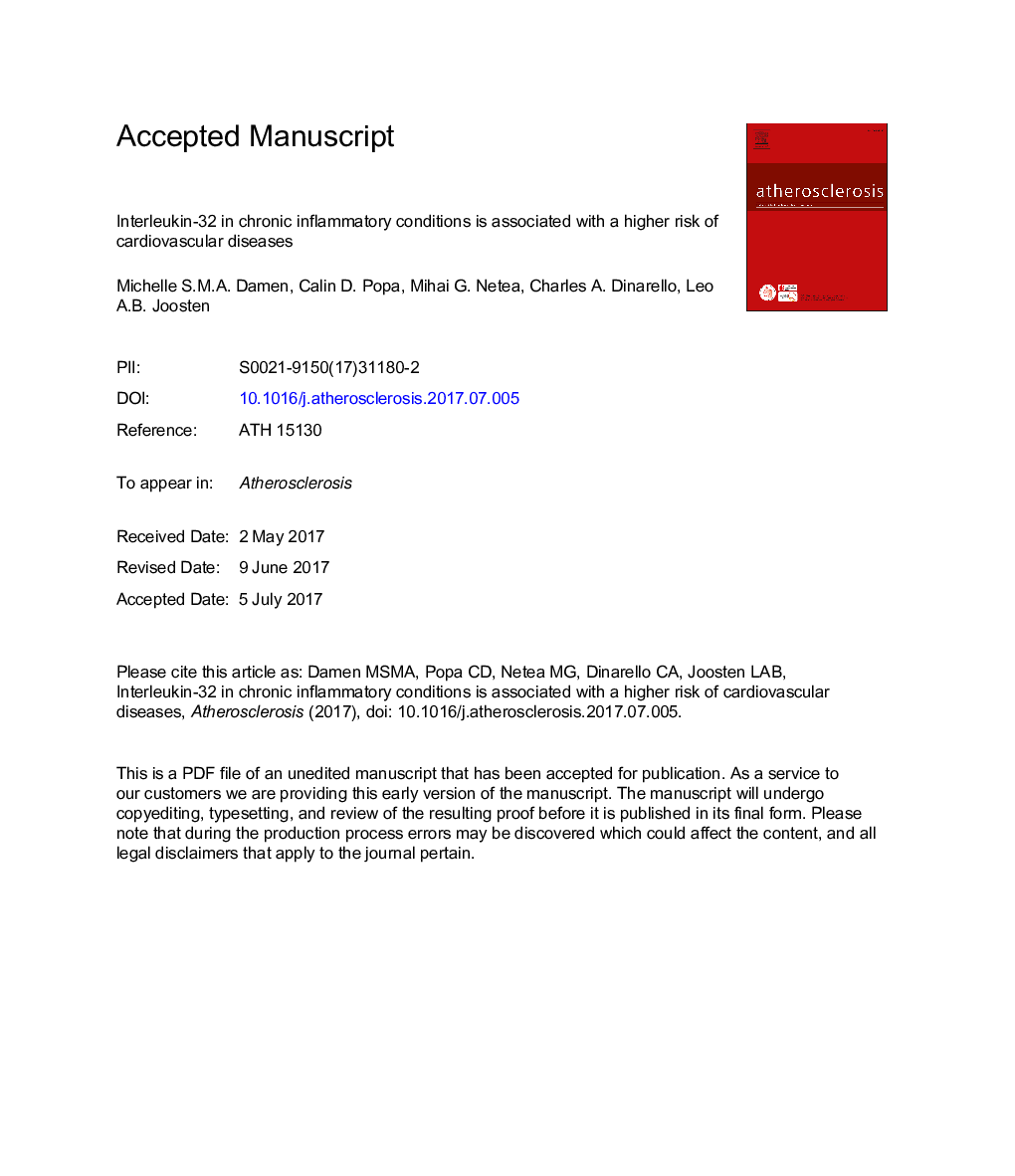| Article ID | Journal | Published Year | Pages | File Type |
|---|---|---|---|---|
| 5599391 | Atherosclerosis | 2017 | 27 Pages |
Abstract
Cardiovascular diseases (CVD) are the most frequent cause of death in developed countries. Their prevalence is higher in several chronic inflammatory conditions. This is likely due to the substantial contribution of the inflammatory status of the patients to the development and stability of atherosclerotic plaques. Recent evidence suggests that interleukin (IL)-32 may be involved in the conditions that contribute to CVD. IL-32 not only modulates important inflammatory pathways known to contribute to the pathogenesis of both inflammatory diseases and atherosclerosis, including tumor necrosis factor (TNF)α, IL-6 or IL-1β, but it has been also suggested to modulate endothelial cell function and the serum concentration of high-density lipoprotein (HDL). In this review, we highlight the recent advances in the field of IL-32 in relation to chronic inflammatory disorders and argue for a role of IL-32 in the increased prevalence of CVD in these patients.
Keywords
Related Topics
Health Sciences
Medicine and Dentistry
Cardiology and Cardiovascular Medicine
Authors
Michelle S.M.A. Damen, Calin D. Popa, Mihai G. Netea, Charles A. Dinarello, Leo A.B. Joosten,
